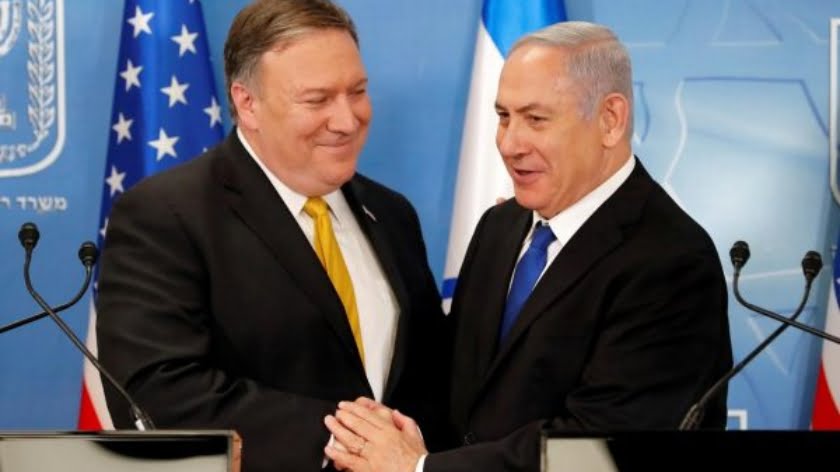The Lesson of Covid: When People Are Anxious, Isolated and Hopeless, They’re Less Ready to Think Critically
When I criticize meddling in Syria by Britain and America, or their backing of groups there that elsewhere are considered terrorists, it does not follow that I am, therefore, a cheerleader for the dictatorship of Bashar Assad or that I think that Syrians should be denied a better political system. Similarly, when I criticize Joe Biden or the Democratic party, it does not necessarily follow that I think Donald Trump would have made a better president.
A major goal of critical thinking is to stand outside tribal debates, where people are heavily invested in particular outcomes, and examine the ways debates have been framed. This is important because one of the main ways power expresses itself in our societies is through the construction of official narratives – usually through the billionaire-owned media – and the control and shaping of public debate.
You are being manipulated – propagandized – even before you engage with a topic if you look only at the substance of a debate and not at other issues: such as its timing, why the debate is taking place or why it has been allowed, what is not being mentioned or has been obscured, what is being emphasized, and what is being treated as dangerous or abhorrent.
If you want to be treated like a grown-up, an active and informed participant in your society rather than a blank sheet on which powerful interests are writing their own self-serving narratives, you need to be doing as much critical thinking as possible – and especially on the most important topics of the day.
Learning curve
The opportunity to become more informed and insightful about how debates are being framed, rather than what they are ostensibly about, has never been greater. Over the past decade, social media, even if the window it offered is rapidly shrinking, has allowed large numbers of us to discover for the first time those writers who, through their deeper familiarity with a specific topic and their consequent greater resistance to propaganda, can help us think more critically about all kinds of issues – Russia, Venezuela, Iran, Israel-Palestine, the list is endless.
This has been a steep learning curve for most of us. It has been especially useful in helping us to challenge narratives that vilify “official enemies” of the west or that veil corporate power – which has effectively usurped what was once the more visible and, therefore, accountable political power of western states. In the new, more critical climate, the role of the war industries – bequeathed to us by western colonialism – has become especially visible.
But what has been most disheartening about the past two years of Covid is the rapid reversal of the gains made in critical thinking. Perhaps this should not entirely surprise us. When people are anxious for themselves or their loved ones, when they feel isolated and hopeless, when “normal” has broken down, they are likely to be less ready to think critically.
The battering we have all felt during Covid mirrors the emotional, and psychological assault critical thinking can engender. Thinking critically increases anxiety by uncomfortably exposing us to the often artificial character of official reality. It can leave us feeling isolated and less hopeful, especially when friends and family expect us to be as deeply invested in the substance – the shadow play – of official, tribal debates as they are. And it undermines our sense of what “normal” is by revealing that it is often what is useful to power elites rather than what is beneficial to the public good.
Emotional resilience
There are reasons why people are drawn to critical thinking. Often because they have been exposed in detail to one particular issue that has opened their eyes to wider narrative manipulations on other issues. Because they have the tools and incentives – the education and access to information – to explore some issues more fully. And, perhaps most importantly, because they have the emotional and psychological resilience to cope with stripping away the veneer of official narratives to see the bleaker reality beneath and to grasp the fearsome obstacles to liberating ourselves from the corrupt elites that rule over us and are pushing us towards ecocidal oblivion.
The anxieties produced by critical thinking, the sense of isolation, and the collapse of “normal” is in one sense chosen. They are self-inflicted. We choose to do critical thinking because we feel capable of coping with what it brings to light. But Covid is different. Our exposure to Covid, unlike critical thinking, has been entirely outside our control. And worse, it has deepened our emotional and psychological insecurities. To do critical thinking in a time of Covid – and most especially about Covid – is to add a big extra layer of anxiety, isolation, and hopelessness.
Covid has highlighted the difficulties of being insecure and vulnerable, thereby underscoring why critical thinking, even in good times, is so difficult. When we are anxious and isolated, we want quick, reassuring solutions, and we want someone to blame. We want authority figures to trust and act in our name.
Complex thinking
It is not hard to understand why the magic bullet of vaccines – to the exclusion of all else – has been so fervently grasped during the pandemic. Exclusive reliance on vaccines has been a great way for our corrupt, incompetent governments to show they know what they are doing. The vaccines have been an ideal way for corrupt medical-industrial corporations – including the biggest offender, Pfizer – to launder their images and make us all feel indebted to them after so many earlier scandals like Oxycontin. And, of course, the vaccines have been a comfort blanket to us, the public, promising to bring ZeroCovid (false), to provide long-term immunity (false), and to end transmission (false).
And as an added bonus, vaccines have allowed both our corrupt leaders to shift the blame away from themselves for their other failed public health policies and our corrupt “health” corporations to shift attention away from their profiteering by encouraging the vaccinated majority to scapegoat an unvaccinated minority. Divide and rule par excellence.
To state all this is not to be against the vaccines or believe the virus should rip through the population, killing the vulnerable, any more than criticizing the US war crime of bombing Syria signifies enthusiastic support for Assad. It is only to recognize that political realities are complex, and our thinking needs to be complex too.
‘Herd immunity
These ruminations were prompted by a post on social media I made the other day referring to the decision of the Guardian – nearly two years into the pandemic – to publish criticisms by an “eminent” epidemiologist, Prof Mark Woolhouse, of the British government’s early lockdown policies. Until now, any questioning of the lockdowns has been one of the great unmentionables of the pandemic outside of right-wing circles.
Let us note another prominent example: the use of the term “herd immunity,” which was until very recently exactly what public health officials aimed for as a means to end contagion. It signified the moment when enough people had acquired immunity, either through being infected or vaccinated, for community transmission to stop occurring. But because the goal during Covid is not communal immunity but universal vaccination, the term “herd immunity” has now been attributed to a sinister political agenda. It is presented as some kind of right-wing plot to let vulnerable people die.
This is not accidental. It is an entirely manufactured, if widely accepted, narrative. Recovery from infection – something now true for many people – is no longer treated by political or medical authorities as conferring immunity. For example, in the UK, those who have recovered from Covid, even recently, are not exempted, as the vaccinated are, from self-isolation if they have been in close contact with someone infected with Covid. Also, of course, those recovered from Covid do not qualify for a vaccine passport. After all, it is not named an immunity passport. It is a vaccine passport.
Emmanuel Macron, the French president, has at least been open about the “reasoning” behind this kind of discrimination. “In a democracy,” he says, apparently unironically, “the worst enemies are lies and stupidity. We are putting pressure on the unvaccinated by limiting, as much as possible, their access to activities in social life. … For the non-vaccinated, I really want to piss them off. And we will continue to do this, to the end. This is the strategy.”
Notice that the lies and stupidity here emanate from Macron: he is not only irresponsibly stoking dangerous divisions within French society, he has also failed to understand that the key distinctions from a public health perspective are between those with immunity to Covid and those without it and those who are vulnerable to hospitalization and those who are not. These are the most meaningful markers of how to treat the pandemic. The obsession with vaccination only serves a divide and rule agenda and bolsters pandemic profiteering.
Crushing hesitancy
The paradox is that these narratives dominate even as the evidence mounts that the vaccines offer very short-term immunity and that, ultimately, as Omicron appears to be underscoring, many people are likely to gain longer-term immunity through Covid infection, even those who have been vaccinated. But the goal of public “debate” on this topic has not been transparency, logic, or informed consent. Instead, it has been the crushing of any possible “vaccine hesitancy.”
I have repeatedly tried to highlight the lack of critical thinking around the exclusive focus on vaccines rather than immune health, the decision to vaccinate children in the face of strong, if largely downplayed, opposition from experts, and the divisive issue of vaccine mandates. But I have had little to say directly about lockdowns, which have tended to look to me chiefly like desperate stop-gap measures to cover up the failings of our underfunded, cannibalized, and increasingly privatized health services (a more pressing concern). I am also inclined to believe that the balance of benefits from lockdowns, or whether they work, is difficult to weigh without some level of expertise. That is one reason why I have been arguing throughout the pandemic that experts need to be allowed more open, robust, and honest public debate.
It is also why I offered a short comment on Prof Woolhouse’s criticisms, published in the Guardian this week, of national lockdown policies. This evoked a predictably harsh backlash from many followers. They saw it as further proof that the “Covid denialists have captured me,” and I am now little better than a pandemic conspiracy theorist.
Framing the debate
That is strange in itself. Prof Woolhouse is a mainstream, reportedly “eminent” epidemiologist. His eminence is such that it also apparently qualifies him to be quoted extensively and uncritically in the Guardian. The followers I antagonize every time I write about the pandemic appear to treat the Guardian as their Covid Bible, as do most liberals. And they regularly castigate me for referring to the kind of experts the Guardian refuses to cite. So how does my retweeting of a Guardian story that uncritically reports on anti-lockdown comments from a respectable, mainstream epidemiologist incur so much wrath – and seemingly directed only against me?
The answer presumably lies in the short appended comment in my retweet, which requires that one disengage from the seemingly substantive debate – lockdowns, good or bad? That conversation is certainly interesting to me, especially if it is an honest one. But the contextual issues around that debate, the ones that require critical thinking, are even more important because they are the best way to evaluate whether an honest debate is actually being fostered.
My comment, intentionally ambiguous, implicitly requires readers to examine wider issues about the Guardian article: the timing of its publication, why a debate about lockdowns has not previously been encouraged in the Guardian but apparently is now possible, how the debate is being framed by Woolhouse and the Guardian, and how we, the readers, may be being manipulated by that framing.
Real, live conspiracy
Interestingly, I was not alone in being struck by how strange the preferred framing was. A second epidemiologist, Martin Kulldorff, a biostatistician at Harvard who serves on a scientific committee to the US Centers for Disease Control and Prevention (CDC), saw problems with the article too. Unfortunately, however, Prof Kulldorff appears not to qualify as “eminent” enough for the Guardian to quote him uncritically. That is because he was one of three highly respected academics who brought ignominy down on their heads in October 2020 by authoring the Great Barrington Declaration.
Like Woolhouse, the Declaration offered an alternative to blanket national lockdowns – the official response to rising hospitalizations – but did so when those lockdowns were being aggressively pursued, and no other options were being considered. The Guardian was among those that pilloried the Declaration and its authors, presenting it as an irresponsible right-wing policy and a recipe for Covid to tear through the population, laying waste to significant sections of the population.
My purpose here is not to defend the Great Barrington Declaration. I don’t feel qualified enough to express a concrete, public view one way or another on its merits. And part of the reason for that hesitancy is that any meaningful conversation at the time among experts was ruthlessly suppressed. The costs of lockdowns were largely unmentionable in official circles and the “liberal” media. It was instantly stigmatized as the policy preference of the “deplorable” right.
This was not accidental. We now know it was a real, live conspiracy. Leaked emails show that Anthony Fauci, the chief medical adviser to the president, and his minions used their reliable contacts in prominent liberal media to smear the authors of the Great Barrington Declaration. “There needs to be a quick and devastating published takedown of its premises. I don’t see anything like that online yet – is it underway?” a senior official wrote to Fauci. The plan was character assassination, pure and simple—nothing to do with science. And “liberal” media happily and quickly took up that task.
The Guardian, of course, went right along with those smears. This is why Prof Kulldorff has every right to treat with disdain both the Guardian’s decision to now publish Prof Woolhouse’s criticisms – so very belatedly – of lockdown policy and Prof Woolhouse’s public distancing of himself from the now-radioactive Great Barrington Declaration even though his published comments closely echo the policies proposed in the Declaration. As Prof Kulldorff observes:
Hilarious logical somersault. In the Guardian, Mark Woolhouse argues that [the] UK should have used focused protection as defined in the Great Barrington Declaration, while criticizing the Great Barrington Declaration due to its mischaraterization by the Guardian.”
Reputational damage
If we put on our critical thinking hats for a moment, we can deduce a plausible reason for that mischaracterization.
Like the rest of the “liberal” media, the Guardian has been fervently pro-lockdown and an avowed opponent of any meaningful discussion of the Great Barrington Declaration since its publication more than a year ago. Moreover, it has characterized any criticism of lockdowns as an extreme right-wing position. But the paper now wishes to open up a space for a more critical discussion of the merits of lockdown at a time when rampant but milder Omicron threatens to shut down not only the economy but distribution chains and health services.
Demands for lockdowns are returning – premised on the earlier arguments for them – but the formerly obscured costs are much more difficult to ignore now. Even lockdown cheerleaders like the Guardian finally understand some of what was clear 15 months ago to experts like Prof Kulldorff and his fellow authors.
What the Guardian appears to be doing is smuggling the Great Barrington Declaration’s arguments back into the mainstream but trying to do it in a way that won’t damage its credibility and look like an about-face. It is being entirely deceitful. And the vehicle for achieving this end is a fellow critic of lockdowns, Prof Woolhouse, who is not tainted goods like Prof Kulldorff, even though their views appear to overlap considerably. Criticism of lockdowns is being rehabilitated via Prof Woolhouse, even as Prof Kulldorff remains an outcast, a deplorable.
In other words, this is not about any evolution in scientific thinking. It is about the Guardian avoiding reputational damage – and doing so at the cost of continuing to damage Prof Kulldorff’s reputation. Prof Kulldorff and his fellow authors were scapegoated when their expert advice was considered politically inconvenient, while Prof Woolhouse is being celebrated because similar expert advice is now convenient.
This is how much of our public discourse operates. The good guys control the narrative so that they can ensure they continue to look good, while the bad guys are tarred and feathered, even if they are proven right. The only way to really make sense of what is going on is to disengage from this kind of political tribalism, examine contexts, avoid being so invested in outcomes, and work hard to gain more perspective on the anxiety and fear each of us feels.
The corporate media is not our friend. Its coverage of the pandemic is not there to promote the public good. It is there to feed our anxieties, keep us coming back for more, and monetize that distress. The only cure for this sickness? A lot more critical thinking.
Feature photo | People crowd along a street of Barcelona to buy books and roses at makeshift stands as Catalans celebrate the day of their patron saint, Sant Jordi. Emilio Morenatti | AP







